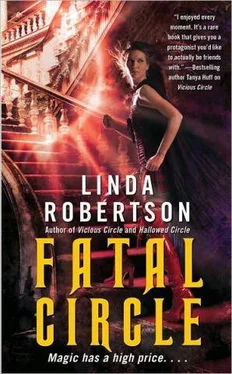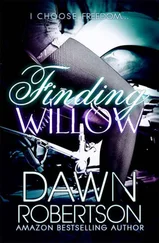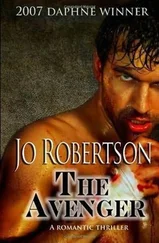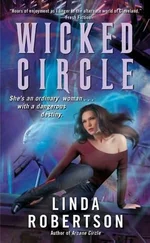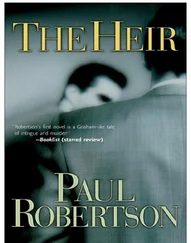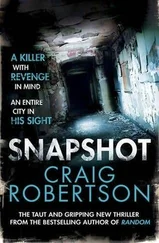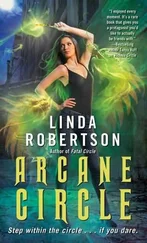Farther down the sidewalk, he answered my prior question. “Some Beholders want to be timeless immortals, I guess. I don’t know why.”
“I thought that was standard. Why don’t you want it?”
“I know my place. I’ve seen the bottom, and seeing it, feeling that low, leaves scars. I’d rather die than go back there, and when I say die I mean real death. Not undeath. My place isn’t anywhere near the top. Why would I want that to go on forever?”
“You’re not afraid of dying.”
“No. But yeah, the Beholders who are desperate to become vampires, they are. You can see it in their eyes. That’s why he won’t make them.”
“Do they know he won’t?”
“Most of us know that won’t happen. We’re just strong men who’ve lost our place in society. Some were homeless and had nowhere else to go. Some were fed up with the unjust corporate bubble. Some couldn’t break in. Others couldn’t break out. A couple couldn’t handle a breakup. A few just broke down.” He flashed a wistful half-smile that disappeared as quickly as it came. “A lot of broken people in the Boss’s stable. But hard work, and the ability to perceive what the real goal is, garners rewards.”
My confoundedness was genuine. “Huh.”
“What?”
“I don’t know. To me, it seems that taking shelter with vampires would only be an alternative end to an already self-destructive cycle. I hadn’t considered that people could find a new beginning and a safe refuge with a vampire.”
Mountain tipped his head toward me. “Do you know why we call him Boss?”
“No.”
“We aren’t slaves. We do honest work and are compensated fairly.”
I nodded.
“Here we are.” I followed his gesture and I stopped in my tracks. All the beautiful characteristics of stone were showcased in one elegant façade. Above and to either side of the arch were six smooth columns with ornate capitals, creating vertical lines. An elaborate frieze and layered, rough-hewn stones created horizontal lines. But it was the giant masonry arch, the flair of femininity, that tied it all together and commanded attention. Like a woman who knew how to adorn her curves, the stones of the arch were edged with fascinating and intricate details.
I’d lived near here most of my life and never realized that close by there were gorgeous reminders of how much care and talent people used to put into architecture. “Mountain, thank you.”
“For what?”
“For bringing me up Superior. I wouldn’t have wanted to miss this.”
His cheeks dimpled with a wide grin. “You’re welcome . . . Seph. C’mon.”
Mountain opened the doors and led me inside, where I halted again to take in the scene. The interior was as sophisticated and eye-pleasing as the exterior. “Wow.”
“The two buildings here are joined by this five-story Arcade. The glass skylight is over three hundred feet long. There are eighteen hundred panes of glass up there.”
After filling my sight with the long dome of the skylight, I took in the details before me. The four balconies all had wrought-iron rails that incorporated brassy street lamps. Along the walkway, broad-leafed plants thrived. Everything was marble or brass or gold, and the doors of the shops were glossy wood in keeping with that golden tone.
“It’s one of the first indoor shopping malls in the U.S. Opened in 1890,” he added. “And was funded by several people, but the most famous of them was John D. Rockefeller.”
“How do you know all this?”
“When the Boss first came to Cleveland scouting for places to install the haven, I came with him. Research was my day job for a few weeks. Good libraries here. Did you notice the griffons?” He pointed up at the heads jutting out from the top of the uppermost level like drainage spouts.
We crossed the Arcade, with one level below us—a food court—and two levels above. Many of the shops were vacant, but that couldn’t dampen my awe.
Finally, at the far end from where we’d entered, Mountain pointed toward a door. “I’ll wait for you here.” He settled into a spindly chair at a marble-topped table near the railing. I hoped the chair was cast-iron.
The first door this side of what had to be the Euclid entrance, just as Menessos had said, bore the words WOLFSBANE & ABSINTHE in gold and black letters that tried to glisten, but had seen too many days to have any gleam left.
The knob nearly twisted itself in my palm, and a brass bell clanged to announce my arrival. Inside, the aromas were all I’d come to expect from a witchery supply shop. Near me were racks with slogan-laden tees and a few flouncy shirts—clichéd witch garb. Thick columns held up a high ceiling, and the mosaic tile of the Arcade gave way to wooden flooring inside. It creaked softly under my feet.
It was the back wall, however, that hooked me and drew me in. A wall of tall old shelving with large glass jars, labeled and most cobwebbed, holding every kind of dried herb, flower, nut, seed, and root imaginable. To the right were various-sized scented candles, vials of essential oils, and a plethora of incenses and incense burners. All these scents mingled with the metallic tang of large iron cauldrons and the earthy smell of brooms made with various kinds of straw and wood. My nose didn’t know if it should sneeze or just relish the overloading odors.
I went farther in. There were bins with tumbled and raw gemstones, cases with wands, crystal balls, Tarot decks, and jewelry. There were Goddess statues, small animal statues, gauze bags, bells, and spools of ribbon in all colors. Laden bookshelves dipped in the middle like swaybacked horses, displaying a few dozen titles as well as stylish journals ready to be filled. Near the register was another clothing rack, taller, with a dozen empty hangers and a single rather gaudy orange velvet cape lined with a fabric showing owls and bats in flight. Something smelled like peaches.
A hand parted the pair of purple curtains behind the register, but whoever it was remained shadowed within. “May I help you?” A male voice, deep and commanding.
What was the line from The Wizard of Oz ? “Pay no attention to the man behind the curtain.” “Are you the owner here?”
“You come to make a sales pitch?” he asked grouchily. “ ’Cause we don’t want no coffee machines, no free magazine displays, and no scouting cookies, either.”
I blinked stupidly for a second. “No. None of that. I was told to talk to the owner.”
“By who?”
“I’m not about to reveal that to someone who won’t even show me his face.”
A small-statured man with a long gray beard and hardly a hair atop his head stepped from behind the curtains. His moustache was curled up on either end like the villain in cartoons. He wore a blue button-down-collar shirt, a bulky gray cardigan, and black pants. Thick glasses, oblong and wire-rimmed, sat on his round nose. The left lens had a crack running low across it. They made his eyes look blurry.
My mind was trying to figure out how such a short man could have such a deep voice. “Are you the owner?”
He laughed. “So you were sent to ask something of the owner of Wolfsbane and Absinthe, were you?” His voice and chin lowered. He pointed at me with a single long finger bearing a long ring of yellow zircon. “You’re after the wyrd, ” he said slyly, as if his words affirmed him as a mystical guru.
I really hated it when salespeople of any kind stereotyped a customer. That kind of thing had no place in true witchery and yet too often I found playgans (my term for people “playing pagan” for all the wrong reasons) using the sagely soothsayer persona to make a sale. “Obviously, the person who sent me was wrong. You’re a fake.” I headed for the door.
Читать дальше
